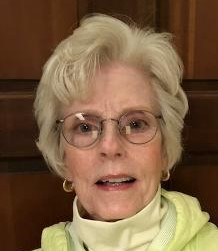Adult children toured retirement communities with their 90-year-old mother, Annie. The selected complex elicited smiles of satisfaction until they walked into a vacant apartment. Annie said, “This place is so small, I will have to go outside to change my mind.” A few days later, her children arranged for movers to relocate their mother’s furnishings. When they arrived with their mother and opened the door to her apartment, Annie exclaimed, “I love it!” as she viewed her treasured possessions snuggled around the cozy apartment. She sat in her favorite chair and said, “It feels like home.” Her children breathed a sigh of relief.
At breakfast in the dining room the next morning, a man seated next to Annie looked at the faces of people at their table and said, “Wrinkles are like a roadmap of where we have been in life. People without wrinkles haven’t accomplished much.” Annie replied, “Or they’ve had a facelift.” Later that morning, Annie’s children visited to check on their mother. When asked how she was adjusting, their mother exclaimed, “I’m not sure I like it here—everyone is so old!” But she did adjust and began enjoying activities and meeting other residents she referred to as “inmates.”
During one daughter’s visit, Annie remarked, “I discovered several of my old friends live here. At dinner last night, when I spotted them sitting at a table together, I said, ‘Oh, my! I am surprised to see you. I thought all of you were dead.’” The daughter thought to herself: my undiplomatic mother but was delighted to hear her mother’s “old friends” invited her to join them for dinner.
Annie’s children began their visits with the question: “How are you, Mom?” Replies were either: “Well, I’m still deaf” or “The food hasn’t gotten any better.” One daughter varied the question: “Mom, what’s new?” Her mother responded, “At my age, nothing is new!” Another daughter asked: “Mom, what have you been doing since my last visit?” Annie, who walked with a cane, replied, “Well, I haven’t been out dancing!”
Some months later, Annie’s son asked, “Mom, how did you get that bruise on your arm?” Annie, who was increasingly deaf, said, “That’s nice, sweetie.” Her son repeated the question to which Annie replied, “Oh, I was telephoning this morning, and I don’t know where that came from.” Her son suppressed a chuckle. Annie’s telephone had been disconnected six months earlier because Annie called people but was unable to hear them, and she called her family at all hours.
One day, while standing in the lobby with her ubiquitous walker, waiting for the dining room to open, Annie watched attendants roll an occupied gurney to a waiting ambulance. Annie said, “It looks like the only way out of here is feet first!” Months later Annie’s numerous purchases of chocolate candies from the in-house gift shop necessitated an unscheduled trip to her doctor who suggested limiting her chocolate consumption. Annie began buying hard candy, and her cheeks bulged like a squirrel as she sucked on lemon drops, one after another.
With her physical condition deteriorating along with her hearing loss, Annie’s doctor recommended a move to assisted living quarters in her community. Her downsized apartment held a hospital-type bed and a few of her treasured furnishings. An attendant greeted one daughter several weeks later and asked if Annie had been a beautiful young lady. The daughter answered, “Yes.” The attendant smiled and said that Annie, while being dressed that morning, looked at her image in the mirror and laughed, saying “I don’t recognize that person.”
As time passed, Annie required increasing assistance and was moved to a nursing home, to which Annie quipped, “Well, at least I am not leaving feet first!” Due to her increased deafness, everyone wrote their questions for Annie on a clipboard notepad. Each of her children received the same response when they inquired about her new living arrangement: “My roommate is a snob, and I guess she thinks I am, too, because she won’t talk to me.” The nursing staff and family were amused at her comment. Since Annie was deaf, they selected a “compatible” roommate—a female stroke victim who could not talk.
While watching decrepit nursing home “inmates” shuffle past her open door, Annie often brought her children’s visits to an abrupt end: “You’d better put on your roller skates and get out of here while the getting’s good.” Her other signal to end their visit was to ring for an attendant who asked what she needed. “I have to go to the loo.” She became agitated if someone did not know the meaning—she read too many English novels and considered herself an anglophile.
Rapidly approaching her 100th year, Annie often said, “I wonder if God has forgotten me?”
One day, Annie’s oldest daughter received a call from the nursing home. Early that morning, Annie yelled at a nurse: “I died last night. Why did you bring me back here? I wanted to stay in Heaven with my parents!” She soon received her wish, escaping with her sense of humor. Her family mourned the loss of their matriarch and Annie’s amusing anecdotes.













